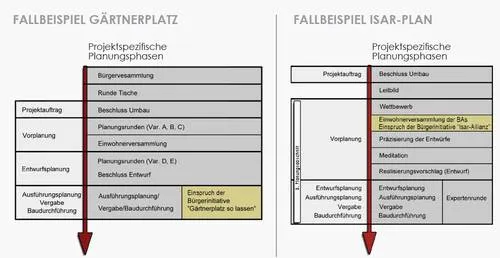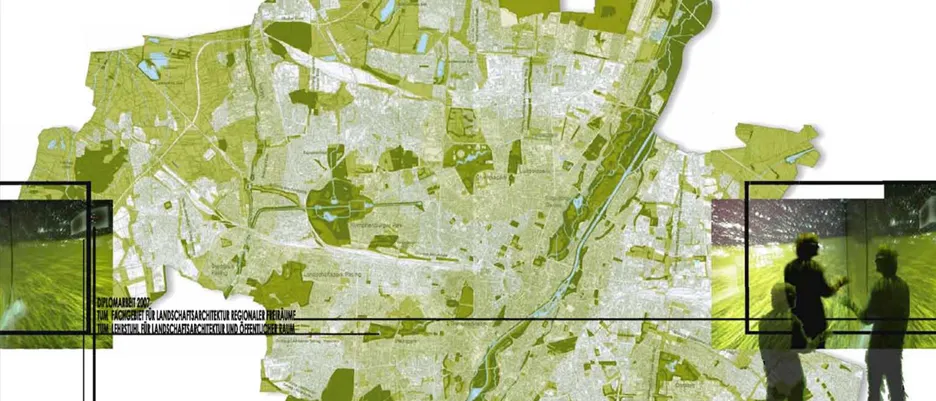Public Space Munihc
PERSPECTIVE - PLAN - PRACTICE
Diploma Thesis, Susann Ahn
Civic Engagement Culture and Understanding of Participation in Munich
The struggle for influence, power, and acceptance among politicians, planners, and citizens has taken on new significance in the face of socio-cultural changes. In the tension between "civic participation" and "citizen resistance," this diploma thesis explores the understanding of participation held by politicians, planners, and citizens.
"Since Willy Brandt's 'Dare More Democracy' and the heyday of citizen participation in the 1960s and 1970s, participation, which involves the involvement and influence of private individuals and groups in municipal planning processes, has evolved multiple times due to social, economic, and demographic changes in our society. Currently, contradictory trends can be observed: on one hand, citizens want to participate when it comes to shaping their environment and demand participation opportunities; on the other hand, some of them withdraw from municipal processes in disappointment because the 'promises' have not been kept. Moreover, the disillusioned are once again willing to assert personal interests against the interests of the urban community, whether individually or by forming new political-strategic alliances." (Bavarian Chamber of Architects 2005)
In Munich as well, alongside the increasing implementation of the concept of participation, there is a trend where citizens are increasingly able to assert their own interests against undesirable projects in urban and open space planning.
Therefore, the focus of this work lies in the examination and presentation of current trends in civic engagement culture at the level of municipal open space planning. The spatial focus is placed on the city of Munich.
Using two current construction projects, "Gärtnerplatz – Redesign of the Inner Circle" and "Isarplan – 3rd Planning Section," a case study analysis exemplifies, thoroughly analyzes, and reflects upon the perceptions and actions of politicians, planners, and citizens regarding their understanding of participation.

From the case study analysis, three significant features become apparent. Firstly, it can be observed that despite various opportunities for participation and efforts on all sides, there are substantial deficits in communication between different interest groups. Secondly, the comparison of the two case studies demonstrates that the timing of citizen activities in the project's progression varies greatly and sometimes runs counter to the planned timeline envisioned by professionals. Thirdly, the case studies highlight a noticeable underlying culture of distrust among different interest groups, which hinders successful collaboration among these groups.

In the end, it becomes evident that the collaboration between politicians, planners, and citizens at the municipal level of open space planning remains highly ambivalent, even after many years of practical experience. Given the socio-cultural changes, on one hand, there is an increasing occurrence of conflicts of interest among politicians, planners, and citizens, while on the other hand, a willingness to cooperate is gaining importance. Therefore, it is necessary in open space planning that the quality of participation tools is continually addressed, assessed, and further developed in the future.
With the explicit consent of Dipl.-Ing. Susann Ahn, the diploma thesis can be downloaded here:
Diploma Thesis "Freiraum München" (PDF, 2MB)
Supervision
Prof. Regine Keller, Prof. Dr. Sören Schöbel, Dr. Klaus Wagner
